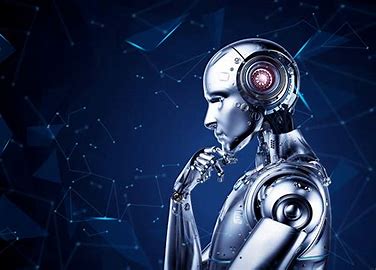
The world of technology is constantly evolving, and the trend of low-code and no-code development platforms has revolutionized the way software is built and maintained. The rise of artificial intelligence (AI) has added a new dimension to this process, with machine learning algorithms playing a key role in automating a significant number of tasks.
In this article, we will explore the future of no-code and AI, including predictions and trends that are likely to shape the industry in the years to come.
No-code development platforms have already proven their worth in the market, offering businesses a way to quickly create custom applications without the need for expensive software engineers. With no-code, even non-technical professionals can develop applications that meet specific business needs. In the coming years, we can expect no-code platforms to become even more sophisticated, offering a wider range of features, capabilities and integrations.
One trend that is likely to continue is the integration of AI algorithms into no-code platforms. For example, these algorithms will be able to analyze user behavior, predict user needs and suggest the best course of action. This will help businesses to make more informed decisions, automate tasks and streamline processes.
Another trend that is likely to emerge is the integration of voice and gesture control into no-code platforms. This will enable users to interact with their applications using natural language, making the experience more intuitive and convenient. Voice and gesture control will also play a key role in the development of Internet of Things (IoT) applications, which are expected to grow significantly in popularity in the coming years.
One major challenge that businesses face when adopting no-code platforms is ensuring that the applications they build are secure. This is especially important for businesses that are dealing with sensitive information, such as financial data or personal information. In the future, we can expect to see no-code platforms offer improved security features that will help businesses protect their data.
AI algorithms are already being used in a number of applications, including voice-based virtual assistants, customer service chatbots, and predictive analytics. In the future, we can expect AI to play a much larger role in the development of software applications, automating tasks and helping businesses to make informed decisions.
One area where AI is likely to have a major impact is in the development of personalized applications. AI algorithms will be able to analyze user behavior, predict user needs and suggest the best course of action. This will help businesses to create applications that are tailored to their customers’ specific needs, making the customer experience more personalized and engaging.
Another trend that is likely to emerge is the use of AI in the development of software that can learn from its surroundings. For example, an application that uses AI to control traffic lights in a city could learn from traffic patterns, adjusting the timing of lights based on real-time traffic flow. This type of application could be used in a variety of industries, from transportation to healthcare.
One challenge that businesses will face when adopting AI technologies is ensuring that their algorithms are trustworthy. As AI algorithms become more sophisticated, it is important to ensure that they are transparent, reliable and unbiased. This is especially important when dealing with sensitive information, such as medical data or financial information. ensuring that their applications are secure and their algorithms are trustworthy.
Another trend that we can expect to see in the future of no-code and AI is the rise of conversational interfaces. With the popularity of virtual assistants like Siri and Alexa, businesses are beginning to realize the potential of conversational interfaces to streamline processes and improve customer experiences. No-code platforms will integrate with chatbots and other conversational interfaces to provide businesses with a more intuitive way to interact with their customers and employees.
The use of AI in software development is also likely to have a positive impact on the job market. Automation will make certain tasks easier and more efficient, freeing up software developers to focus on more complex and creative tasks. As a result, the demand for software developers with expertise in AI and machine learning will likely increase, leading to the creation of new job opportunities.
The integration of AI and machine learning algorithms into no-code platforms will also help businesses to gain valuable insights from their data. For example, AI algorithms will be able to analyze large amounts of data and predict trends and patterns, helping businesses to make more informed decisions. This will help businesses to stay ahead of the competition, remain innovative, and drive growth.
Another area where AI is likely to have a significant impact is in the development of virtual and augmented reality applications. AI algorithms will be able to analyze user behavior and respond to their actions in real-time, creating more immersive and engaging experiences for users. This will be especially important for industries such as gaming, entertainment, and retail, where the use of virtual and augmented reality is expected to grow in popularity.

The future of no-code and AI will also bring challenges, such as ensuring data privacy and security. With the increasing use of AI algorithms in software development, it is important to ensure that user data is protected and not misused. Businesses will need to ensure that their applications are secure and their data is protected, especially when dealing with sensitive information such as financial data or personal information.
Another challenge will be the ethical implications of using AI in software development. As AI algorithms become more sophisticated, it is important to ensure that they are transparent, reliable and unbiased. This is especially important when dealing with sensitive information, such as medical data or financial information. Businesses will need to ensure that their algorithms are trustworthy and do not cause harm to their users or the wider community.
To summarize the future of no-code and AI is looking very promising, with a number of trends and predictions that are likely to shape the industry in the years to come. No-code platforms will become more sophisticated, offering a wider range of features, capabilities, and integrations. AI algorithms will play an increasingly important role in the development of software applications, automating tasks, and helping businesses to make informed decisions. However, businesses will need to be mindful of the challenges that come with adopting these technologies, ensuring that their applications are secure and their algorithms are trustworthy.
Unlock the potential of NoCode & AI and revolutionize your digital innovation journey today!
Don’t miss out on the opportunity to streamline your business processes, boost productivity, and stay ahead of the competition.
Become Digital Innovators from our Free & Comprehensive guide and start implementing NoCode and AI solutions with ease.







